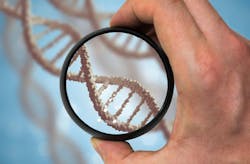By analyzing electronic health records, researchers at University of California San Diego School of Medicine have identified hundreds of new genes associated with tobacco use disorder.
They also identified hundreds of potential drug candidates that could help treat the disease. The study was published on April 17, 2024, in Nature Human Behavior.
The researchers leveraged large volumes of electronic health data from several health systems in the United States, which was enabled by the PsycheMERGE Network, an international consortium of researchers that aims to synthetize medical records and genomics data to better understand and treat neuropsychiatric illnesses. Sandra Sanchez-Roige, Ph.D., leads the substance use disorder workgroup within PsycheMERGE.
For the current study, her team used an approach called genome-wide association, which allows researchers to scan the entire genome and look for variations in our genes associated with certain traits, behaviors, or diseases. This is one approach scientists have used to find genes associated with smoking, but this is the first time this approach has been able to reveal genes associated with tobacco use disorder.
In their study of 898,680 individuals, they found 461 candidate risk genes for tobacco use disorder, mostly expressed in the brain. These genes are associated with a myriad of other psychiatric and medical conditions, such as HIV infection, heart disease, and chronic pain. Further, the researchers were able to validate known findings about genes associated with smoking behaviors, which helped validate their approach.
In addition to giving us a more comprehensive view of tobacco use disorder, the researchers were able to use their results to identify hundreds of potential drug candidates that could help doctors treat the disease. However, it will take more research to evaluate these drugs in the lab and the clinic.

